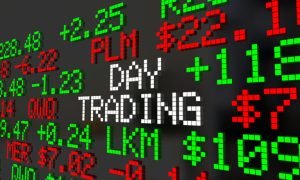Odd Lot refers to a quantity of shares that is less than the standard trading unit, known as a “round lot,” in the stock market. A round lot typically consists of 100 shares, so any trade involving fewer than 100 shares is considered an odd lot.
Detailed Explanation:
- Standard Trading Units: In the stock market, shares are commonly traded in lots of 100, known as round lots. This standardization facilitates the ease and efficiency of trading.
- Odd Lot Characteristics:
- Quantity: An odd lot is any number of shares that is less than 100. For example, if an investor buys or sells 37 shares of a stock, that transaction would be classified as an odd lot.
- Mixed Lots: Sometimes, a transaction may include a combination of round lots and odd lots. For example, a trade involving 135 shares would consist of one round lot of 100 shares and an odd lot of 35 shares.
- Market Perception: Historically, odd lots were associated with retail investors or small traders who couldn’t afford to buy shares in round lots. However, with the advent of online trading platforms and fractional shares, the significance of odd lots has diminished.
- Execution and Pricing:
- Execution: Odd lots might not always be executed at the same time or price as round lots because they are not considered standard units of trading. However, with modern electronic trading systems, this is less of a concern.
- Pricing: In the past, odd lots were sometimes traded at a slight premium or discount compared to round lots due to the inconvenience they posed for brokers. Today, pricing differences are negligible or nonexistent for odd lots on most major exchanges.
- Importance in the Stock Market:
- Liquidity Indicator: High levels of odd lot transactions might indicate increased activity among retail investors.
- Market Sentiment: Some analysts have historically used odd lot data as a contrarian indicator, believing that retail investors (often trading in odd lots) tend to be wrong at market turning points. However, this view is less prevalent today due to the democratization of trading.
Odd lots represent a smaller-than-standard quantity of shares being traded, reflecting the participation of retail investors or the flexibility of modern trading platforms that allow for such transactions without significant price or execution disadvantages.







